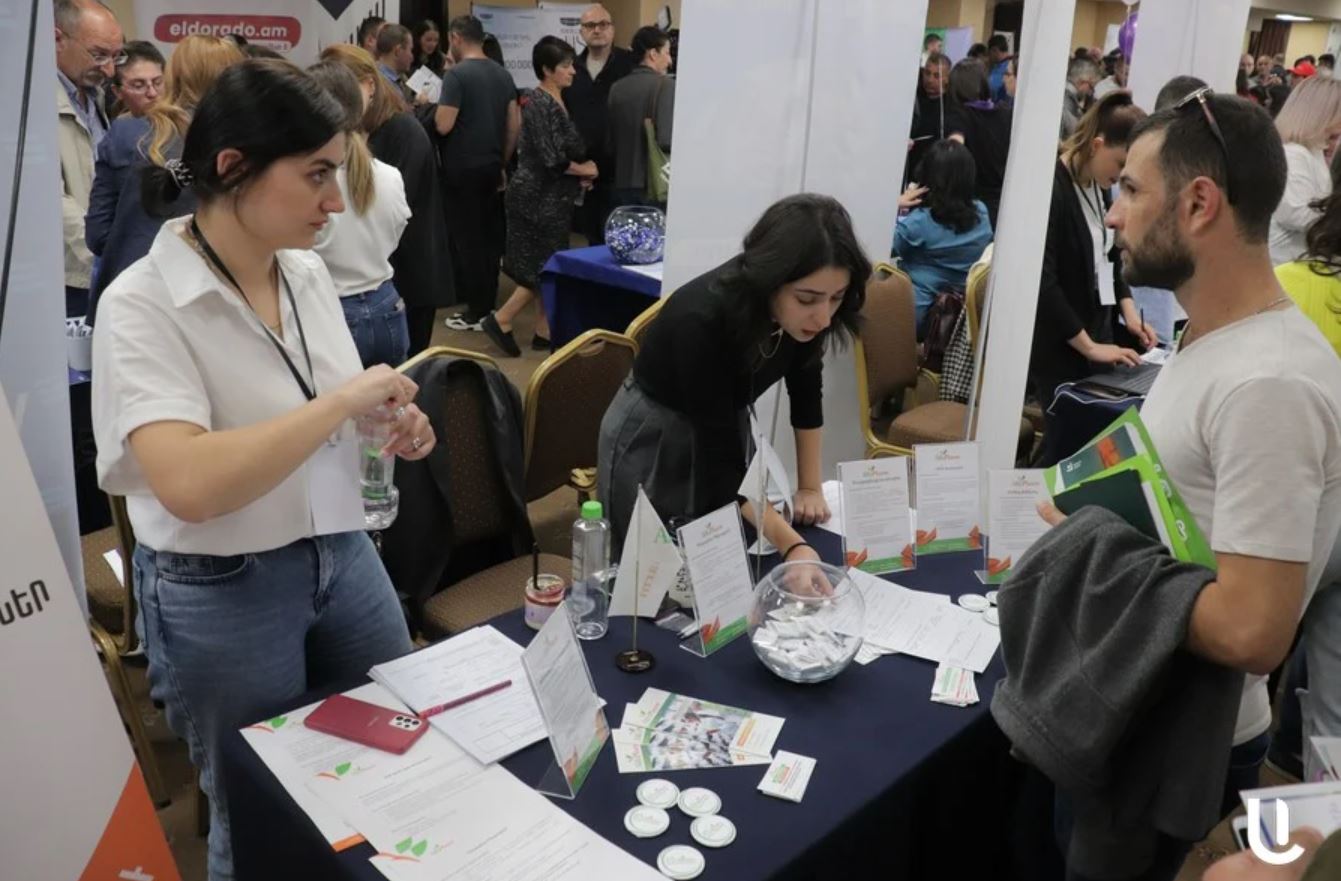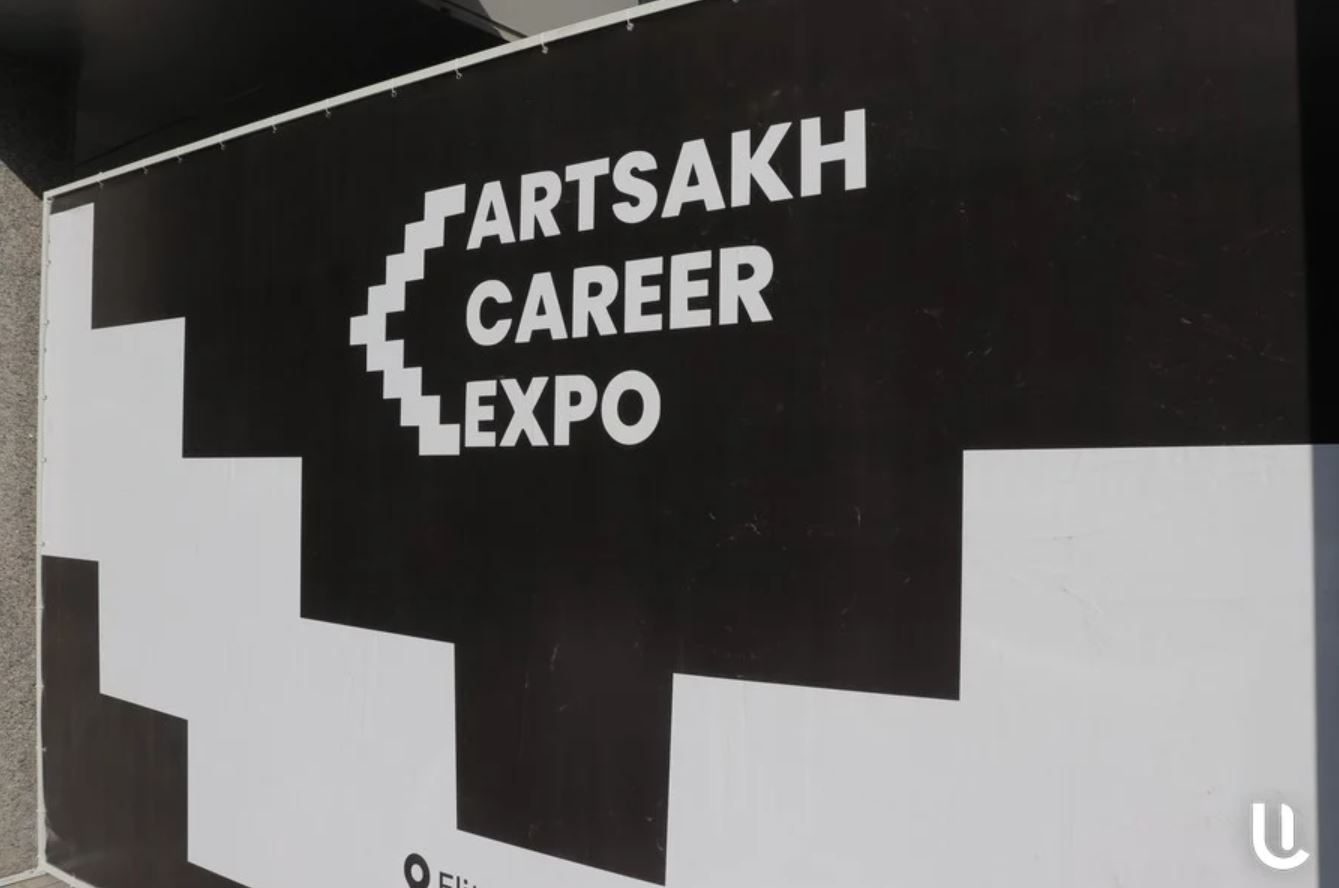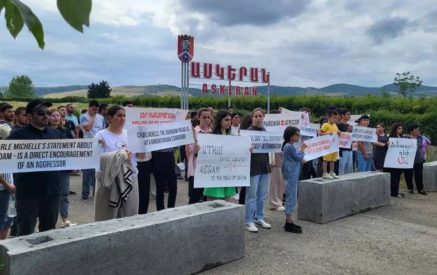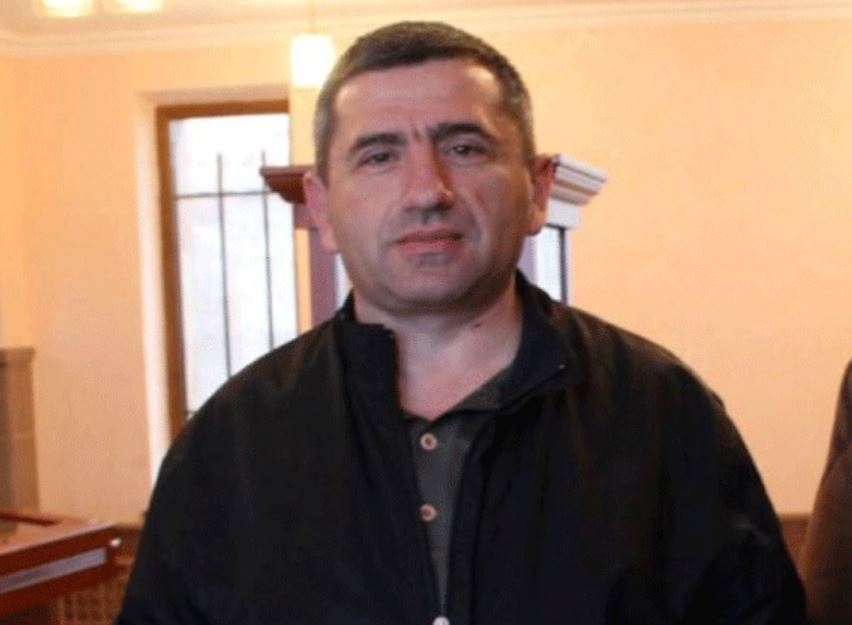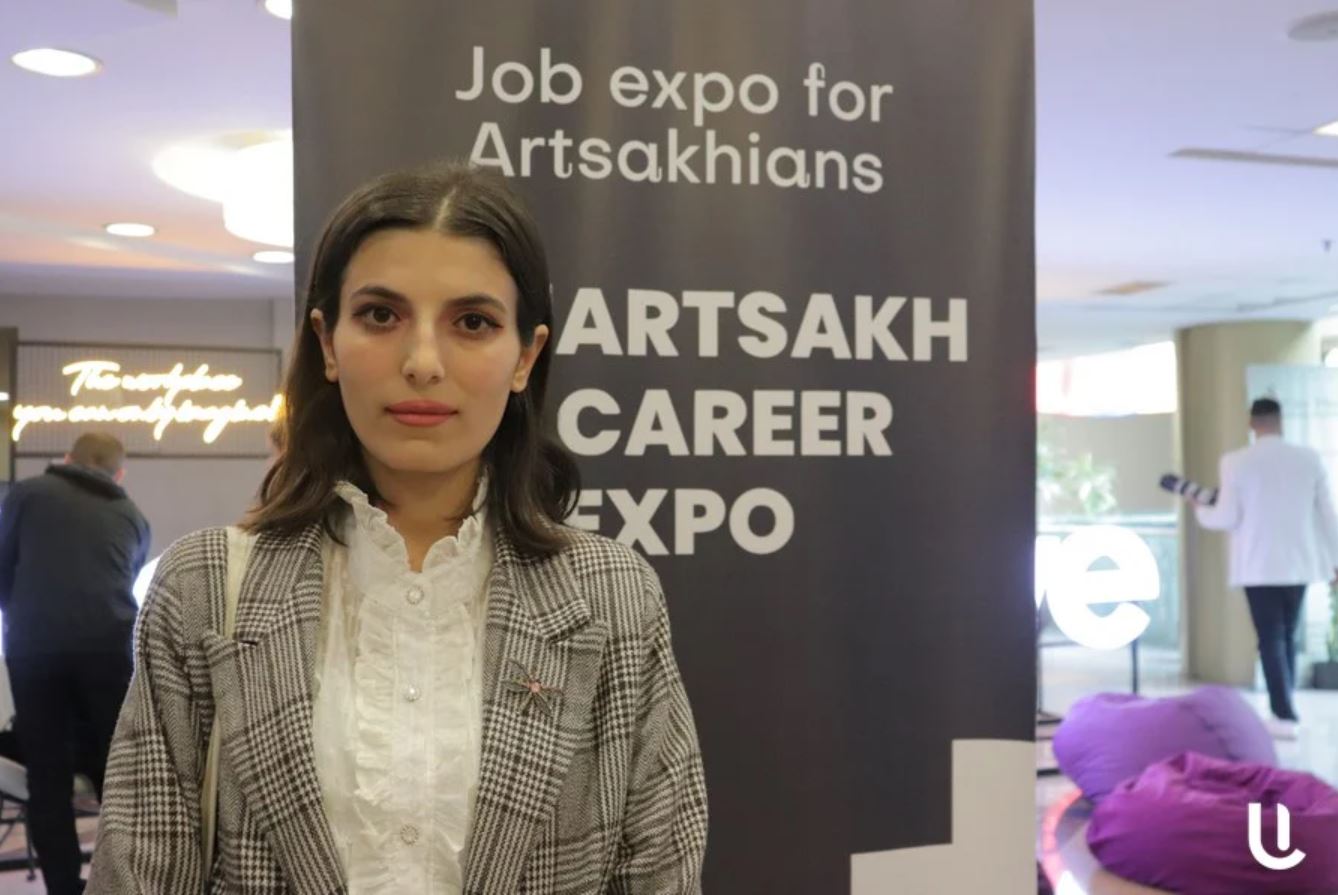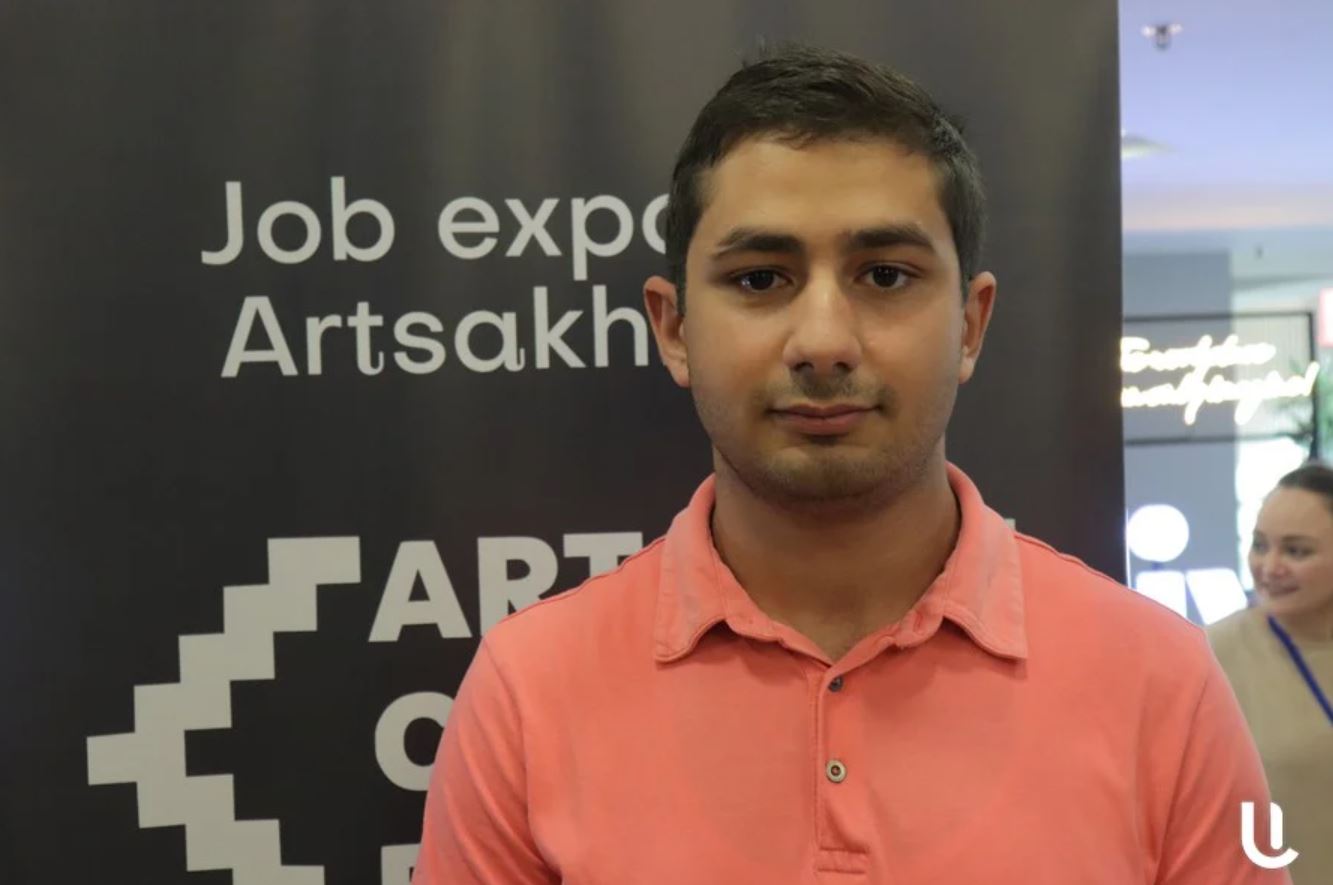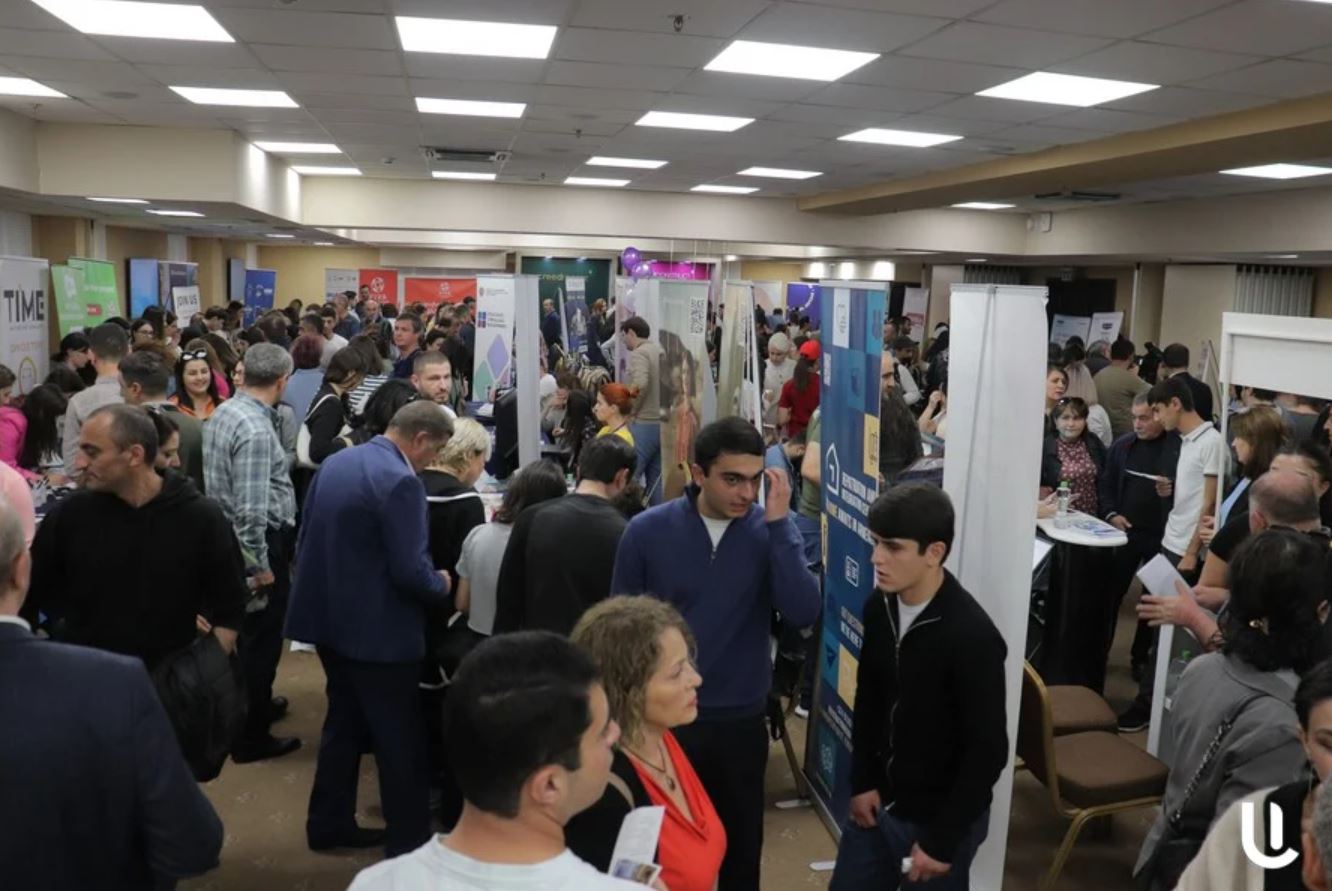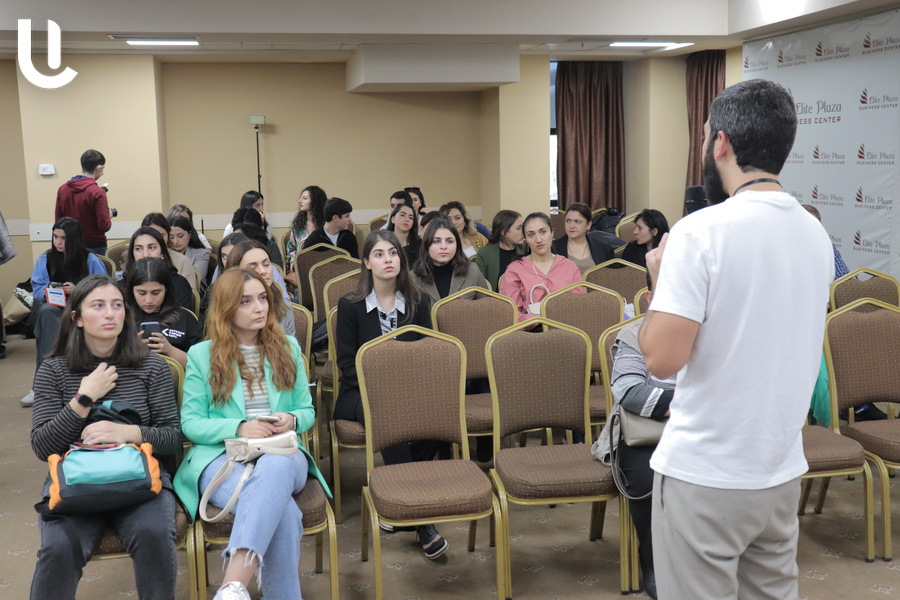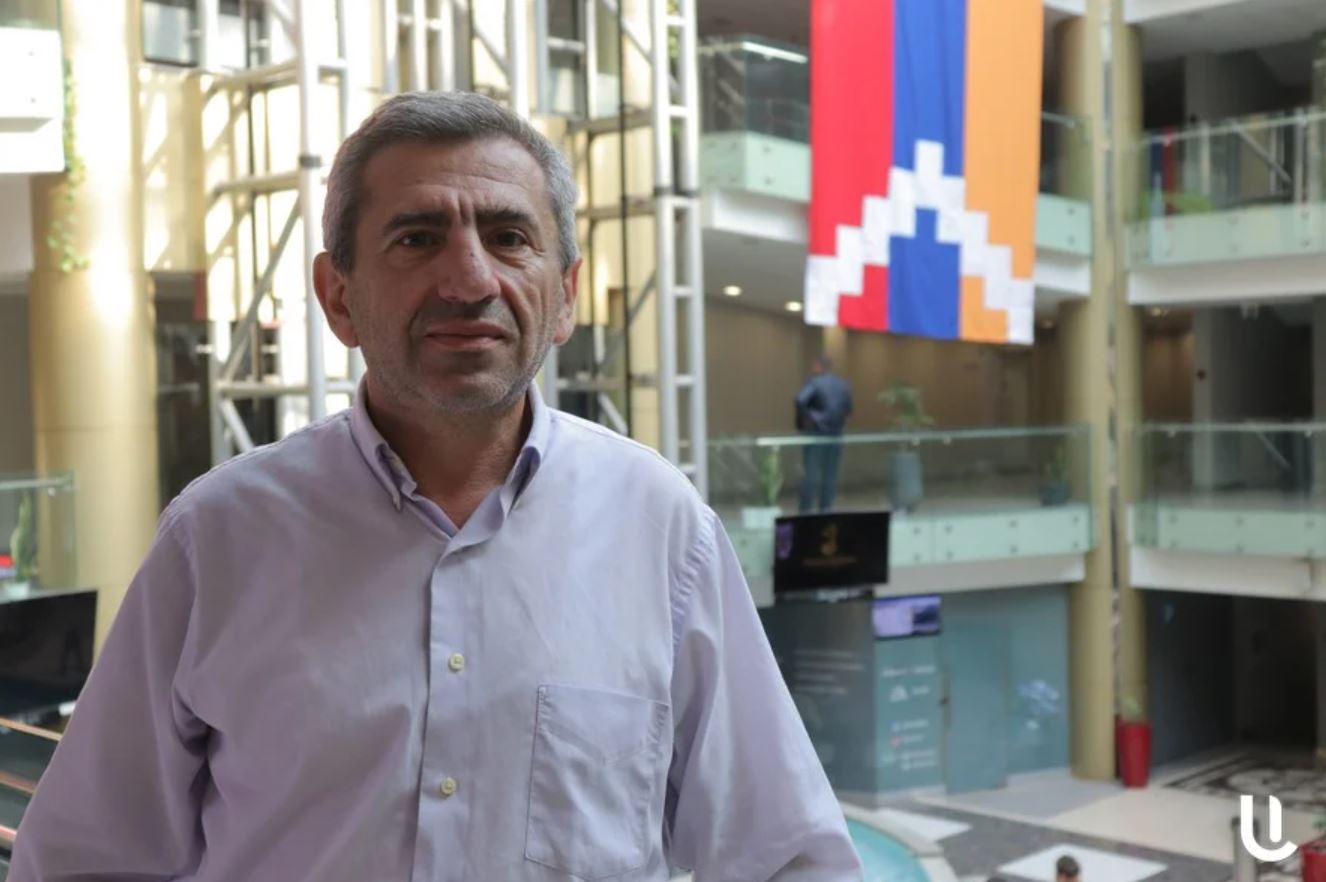“No matter how strange it sounds, I perceive this as an opportunity to change the field, perhaps to acquire a new profession or to find a job closer to my heart,” said 26-year-old Lida Mirzoyan in a conversation with Aravot.am. She and her family moved to Armenia after the military attack of Azerbaijan on September 19. Now, they live with their family in a guest house in Etchmiadzin but are looking for an apartment in Etchmiadzin again.
“There are four of us living: mother, father, sister, and me. It is more difficult for my sister. She worked there on the housing committee, which provided housing support for displaced families in 2020. Now, due to fate, it turned out that we are in the same situation.” Lida is a financier.
Read also
During the Artsakh Career Expo job fair organized for Artsakh residents, she told us: “I am a financier by profession, an economist. I worked for four years in the head office of Artsakhbank as a cashier. Here, too, there is an opportunity to continue the same work. Since ours is a private organization, our workplace is trying to do its best to save the jobs at least, but it is not possible to do it completely because there has been a huge influx of people. They try to keep the best staff through certification.” Lida mentioned that those who worked in the state sector or had their own business are now unemployed.
Tigran Lalayan studies at Shushi University of Technology, which moved to Yerevan. “Perhaps the first problem for all Artsakh residents is to find a house. And that was the most complicated thing from the beginning. We have successfully found an apartment. We live on rent in Yerevan, and then maybe it’s time for work because a person has to work to provide for himself.”
Tigran said that he registered for online IT courses, which are free for Artsakh citizens. “After the three-month courses, I will try to get a job. I need to enter the field of IT. I set a goal to enter that field, and these courses allow me to appear there.”
Melania Barseghyan is a nurse; she worked at the Republican Medical Center of Stepanakert. Now, they live with their family in Etchmiadzin. She told us in the conversation: “I want to continue my work because I have 34 or more years of work experience. But if it doesn’t work out, I must do something to survive.” She said that her daughter went to work for the first day today. Speaking about everything that happened to them, she said that the only bright spot is that she met people with capital letters in RA. She came to RA from Artsakh on September 27; they helped all the wounded. “We came to Armenia after a terrible explosion. My daughter’s husband was injured. He was lying in the burn hospital; those were terrible days. My sister’s son was also injured. There is not a family that is not affected.”
Melania Barseghyan responded to the calls that Artsakh residents should be returned to Artsakh under international guarantees. “What kind of return are we talking about, in what capacity?” In other words, should we integrate? No, we left and came; that’s it; we have to seek our fortune in our homeland if they will accept us. If not, we should move to whoever will take us as refugees and continue our work, activities, and life. We should only go to Armenian Artsakh. Otherwise, it is not possible.”
Davit Karabekyan is a philosopher by profession. He taught at the Artsakh State University and several other universities, engaged in political analysis and human rights activities and acted in journalism and other fields. He mentioned: “Now only 8-10 people have been hired from the university where I taught.
I used to teach at Artsakh State University, which has been disbanded; I also taught at G. Narekatsi University, which was also disbanded. Out of the four universities in Artsakh, one is left, and it is more of an educational complex.” He said that he would like to work as an independent analyst.
“Thank God that the reintegration is in the Armenian land, with the Armenian society, and not what Azerbaijan is trying to do. We must unite and become united, and God will give us victory. We returned to 1988, and in some places, we returned to the period when there was a ring operation, and there was a danger of war. I hope that with God’s help, we will win, and new victories are still ahead. We will return to our homeland again, but it will be in the new Armenian state, and there will be one flag without dividing white lines.”
Tatev HARUTYUNYAN




















































